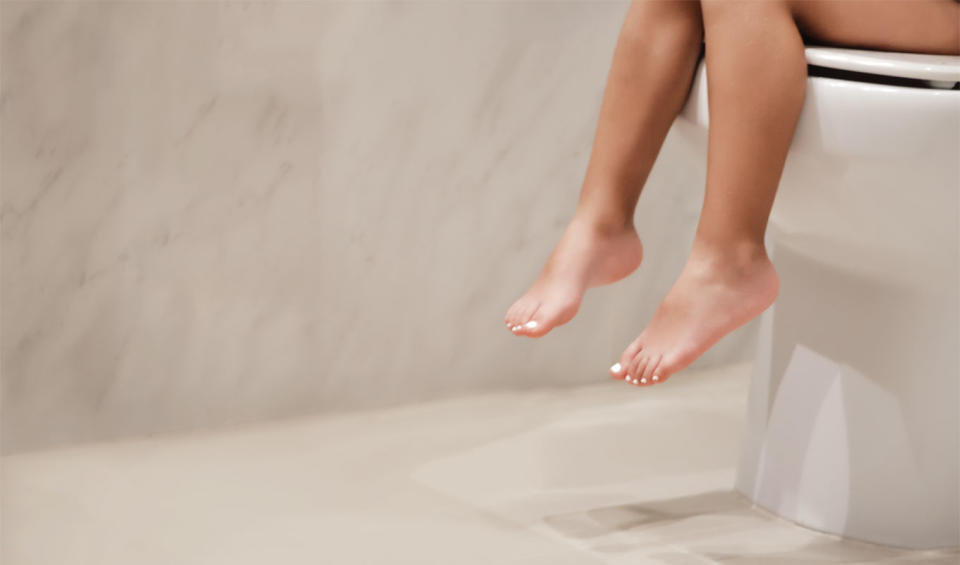How Often Should Kids Poop? A Pediatrician Weighs In
You never could’ve imagined you’d develop a fixation with poop. Then you had a child and, well, you’re obsessing over everything from how often kids should bathe to how much independent play time babies really need. In other words, it’s only natural that you’re pretty interested in what goes into and out of their little bodies. On top of all that, poop can be a serious source of worry for parents—namely because there are so many unanswered questions when it comes to the bowels of babes. (And grownups! I’ve already done plenty of research on adult poop frequency!)
The question du jour: How often should kids poop? Fear not, friends—I got the full scoop on poop from a pediatrician so you can, er, get some relief. Read on for everything you need to know about frequency, color and when there might be cause for concern.
Meet the Expert
Dr. Jarret R. Patton is a pediatrician with over 21 years of experience and the award-winning author of the Whose Bad @$$ Kids Are Those? book series. Dr. Patton is also an educator, advocate and sought-after speaker who’s committed to transforming healthcare and empowering communities.
So How Often Should Kids Poop, Exactly?
There’s no one-size-fits-all answer to this question, since bowel habits change based on age. In general, frequency slows as more solids are introduced into the diet and then stays fairly consistent after the age of three. That said, Dr. Patton tells us that, just like adults, older kids typically settle into their own natural poop schedule and any changes in frequency that depart from the norm (and stick around for an extended period of time) warrant a trip to the pediatrician. With that in mind, here’s a breakdown of what to expect when it comes to pooping frequency, according to age.

SrdjanPav/Gettty Images
Birth to Six Months
According to Dr. Jarret, babies are on a liquid diet and thus have soft stools multiple times per day. How many, though, depends on what they’re being fed. Babies who are breastfeeding typically poop four or even more times per day, while formula fed babies might only have two to three BMs a day.
Six Months to One Year
Whether your baby is formula-fed or breastfed, the introduction of solid food after the six month mark is the great equalizer when it comes to poop frequency: “By the age of six months, the number typically reduces to two or three bowel movements per day across the board,” says Dr. Jarret.
One to Three Years
Per the pediatrician, “after the age of one and up until the age of three, the number of bowel movements may reduce to one or two a day.” In other words, don’t be surprised if your child starts having more substantial, but less frequent poops once they’ve reached the toddler years. This can obviously become complicated once potty training comes into play, but usually regulates once they become more familiar with pooping on a toilet.

SBenitez/Getty Images
Three Years and Older
You’d think our age breakdown would extend beyond this, but it turns out that there’s one thing a three-year-old and a thirteen-year-old have in common, and (you guessed it) it’s poop frequency. Dr. Jarret tells us that “after three years of age, the average is about one bowel movement daily although some kids may only go every other day.” And that remains the case for the majority of kids throughout childhood (and into adulthood, too).
What Poop Colors Are Normal?
The expert says that poop color is typically not a cause for concern and is influenced by your child’s diet. Shades of yellow, green and brown are all normal colors for poop—and the first two are particularly common among breastfed babies. As children get older, you can expect mostly shades of brown but still none of the aforementioned colors should raise concern. (Particularly if you’re lucky enough to have a unicorn kid who eats their veggies.)
When Should You Be Concerned?
An occasional bout of constipation or diarrhea happens to the best of us, and kids are no exception; however, as previously mentioned, if there are changes in bowel habits that last for more than two weeks or recur very frequently, it’s wise to see a pediatrician to make sure there isn’t something else going on and/or get medical advice on how to adjust your child’s diet to address the issue.
As for color, Dr. Jarret says that if your child’s poop is a shade of red or if you see any subtle signs of blood in the stool, a visit to the doctor is warranted; also, if the stool is gray in color, you should definitely consult a physician without hesitation.
And so, now that you’re equipped with all the information you ever needed and never thought you’d want to know about poop, you’re ready to get back to butt-wiping duty stat. Godspeed.

